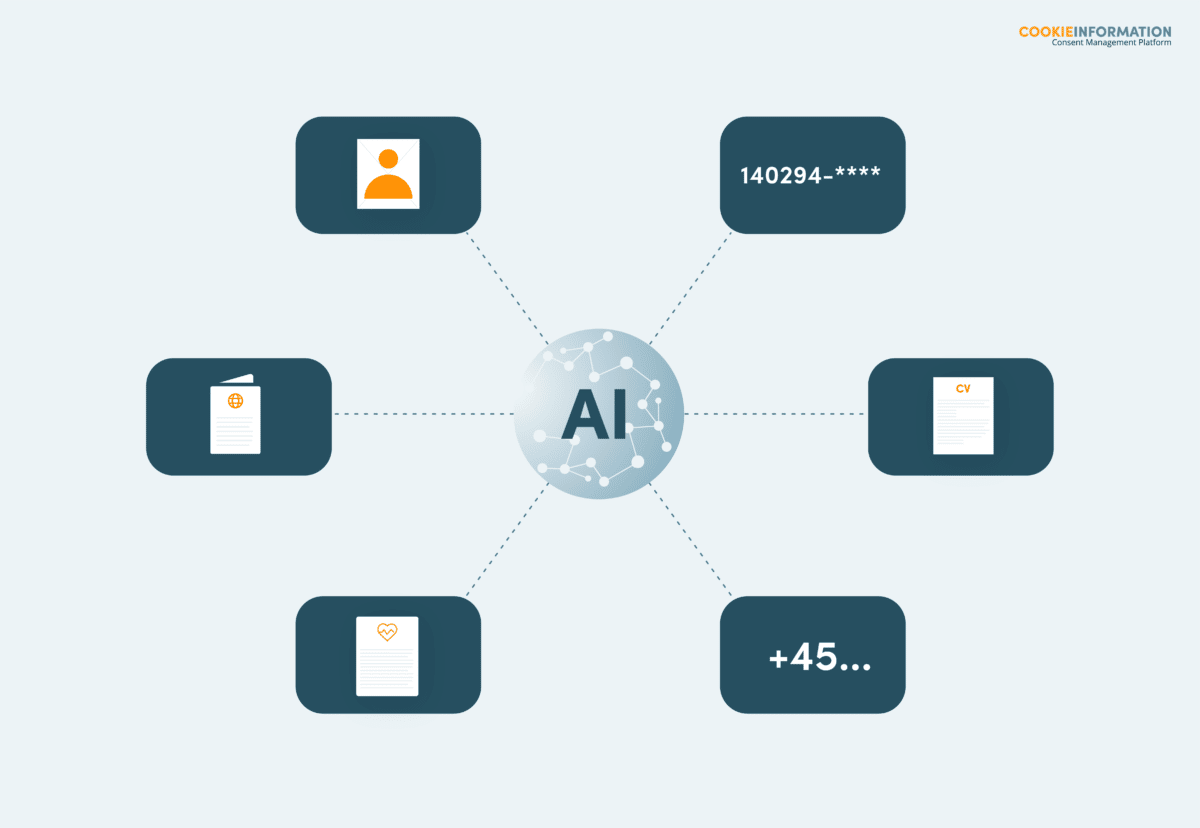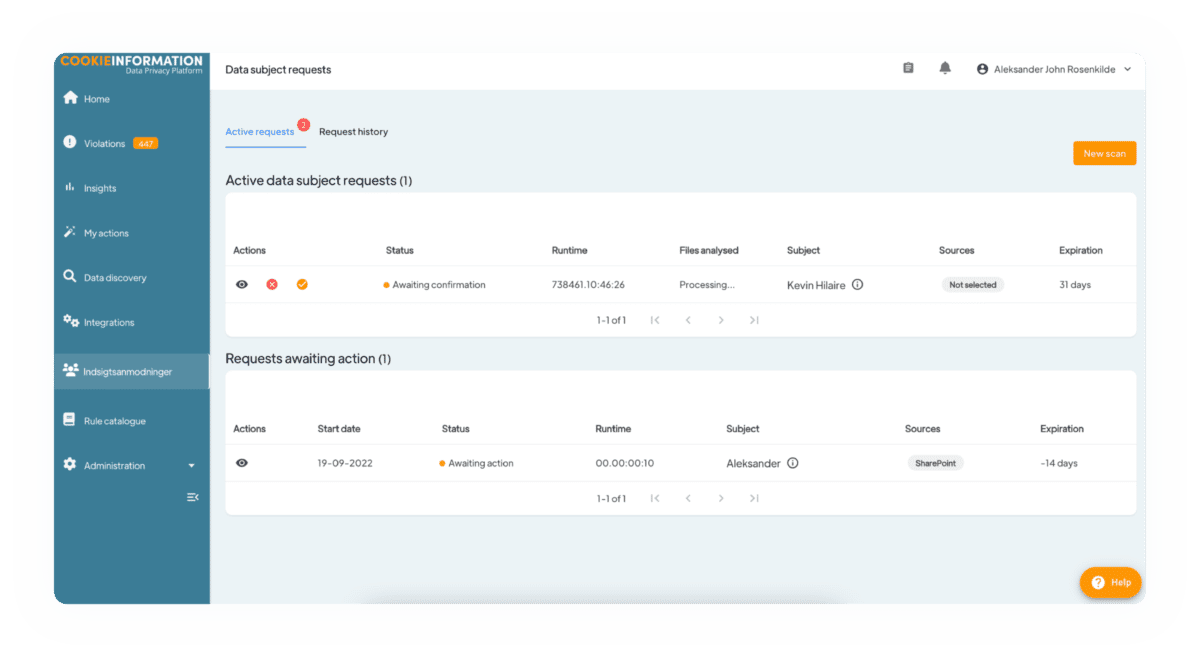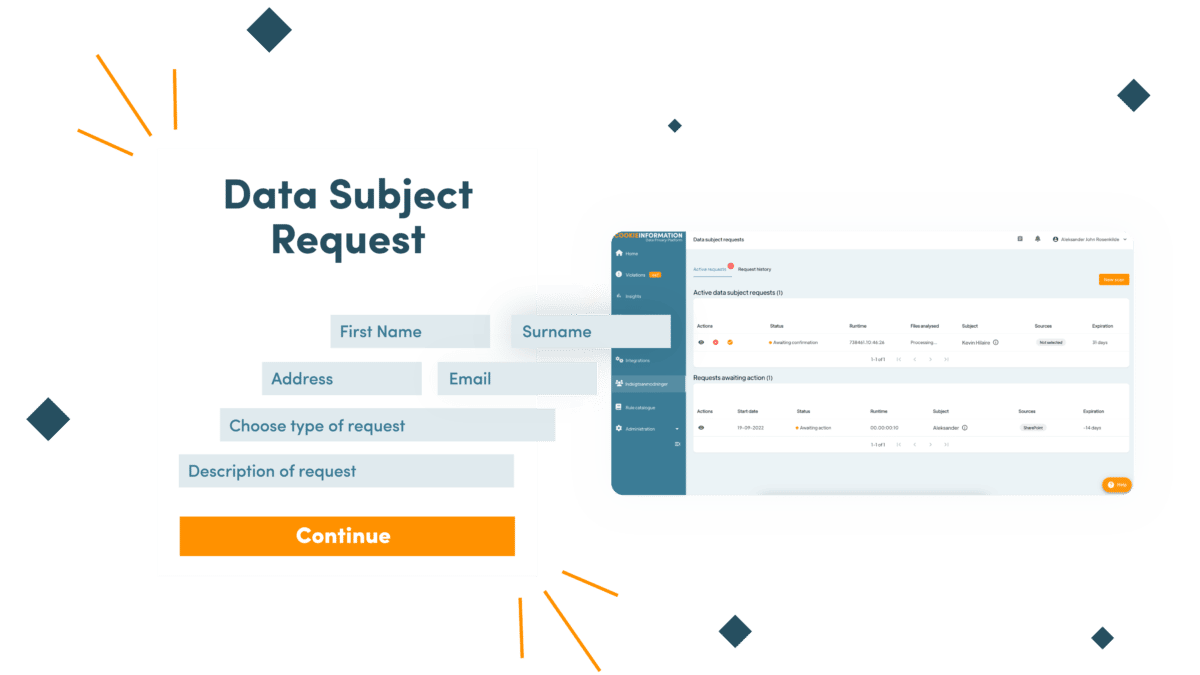TL;DR
- A Data Subject Request (DSR) is an inquiry made by a Data Subject to an organization regarding the collection and processing of personal identifiable information (PII) pertaining to the data subject.
- It is required by law (GDPR) that organizations must be able to comply with data subject requests without undue delay.
- Organizations can benefit greatly from automating their Data Subject Request workflows. It reduces overhead costs, saves time and ensures compliance.
Does my company store personal data records?
Yes, and most likely way more than you dare to imagine.
A personal data record is any category of personal identifiable information (PII) in a digital format. It can be a name, social security number, even an IP address; any information that can be used to identify you as a person. And it is not just the rows and columns you see in a database.
It is also the unstructured data you know from e-mails, attachments, PDF’s, photos and so forth. Essentially, every piece of PII you have ever seen constitutes a personal data record.
How do personal data records affect my company’s data subject requests?
Let it sink in for a moment; every piece of PII you have ever seen. Imagine for a minute how much PII is being exchanged on a daily basis between you and your colleagues.
Without giving it too much thought, many unknowingly generate, share and store PII across company systems, making it accumulate in the most unexpected places.
Consequently, organizations unknowingly and unwillingly accumulate large amounts of personal data records that they are legally responsible for, but not aware of. And this is risky, especially on the matter of DSR compliance.
Imagine your organization receives a DSR. You must find all relevant PII about the data subject across your systems, e-mail inboxes, archives, decommissioned SharePoint sites and so on.
Are you prepared to fulfill such a request without undue delay – and without requiring a disproportionate amount of time and resources?
How do I best prepare for a data subject request?
There is one key factor that affects an organization’s ability to comply with DSRs: Data Retrieval Capability.
Similarly, there is one key driver to increase your data retrieval capability, namely, automation.
In acquiring a purpose-built solution that is specifically designed for the task, you not only save time and reduce costs, but you ensure ongoing and effortless compliance with DSRs.
The overwhelming amount of work that is associated with responding to DSRs makes them incredibly intimidating. However, they don’t have to be. Quite the opposite actually.
Most of the work lies in making sure you only attend to legitimate DSRs and have processes in place to find all relevant PII across systems. Now, with the risk of surprising you, this can all be automated! And it should be.
By replacing the manual workflows with a purpose-built automation tool like Data Subject Request by Cookie Information, you get to put the entire process on autopilot.

And is there any better way to be prepared than knowing you have a system in place that does all the heavy lifting for you? You can simply lean back, rest assured that all relevant personal data records are identified without you having to lift a finger.
Data Subject Request by Cookie Information helps you manage all things DSR, efficiently with one single platform, so you don’t have to. Simply embed the form on your website and get notified when you receive a DSR. Verify the identity of the data subject and let the platform do the rest.
Feel free to go brew a cup of coffee and when you come back, you will see a list of all the personal data records that correspond to the data subject, along with which categories of personal data is being processed.

See, complying with data subject requests doesn’t have to be intimidating or time-consuming at all.
In fact, with the right tools at hand, it’s a breeze.
Put your data subject requests on autopilot
So, the question remains, why would you rely on manual and time-consuming work to comply with DSRs, when you can put the entire process on autopilot and put your mind at ease?
As new privacy laws are introduced and awareness increases, more and more people will exercise their data
privacy rights.
Hence, such requests will increase in volume and become common. Your organization must therefore look for ways to ensure readiness. And the most effective way to do so is by automating your business’ data subject requests.
It is sustainable, reliable, and allows you to always document your compliance.
Data Subject Request
Respond to a Data Subject Request within the required 1-month period without going through thousands of files and folders yourself. Automate your DSR processes.

